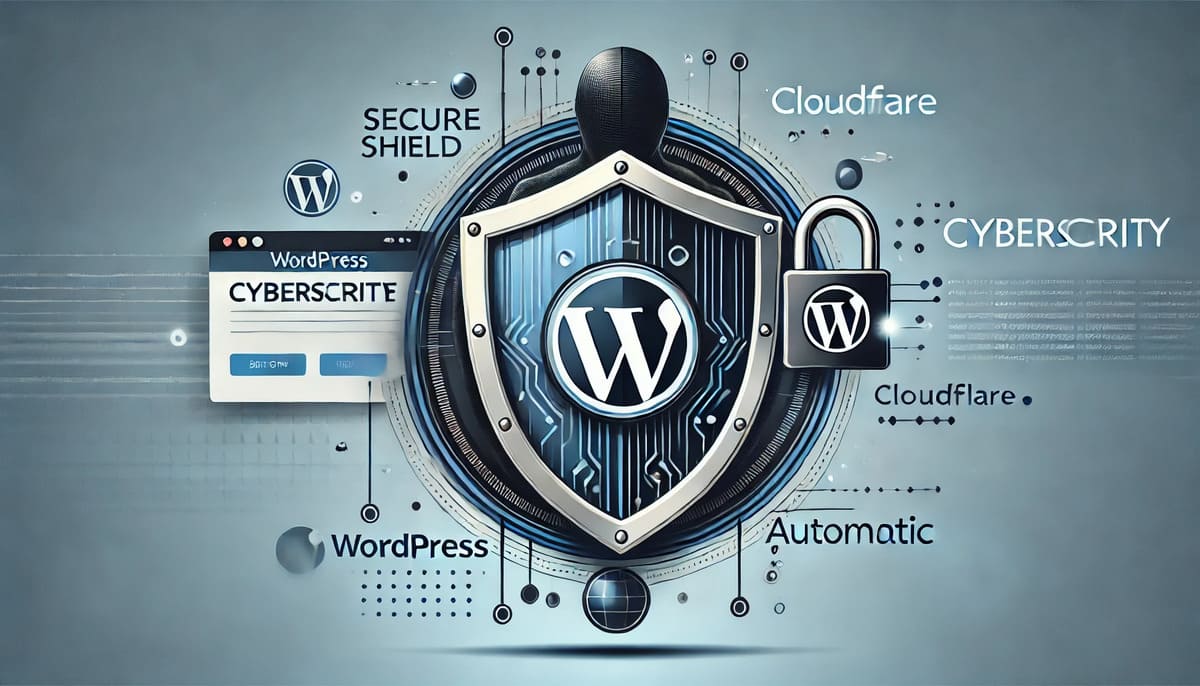
Cloudflare’s block on Automattic’s WP Engine Tracker due to phishing reports highlights key security concerns for WordPress users. Learn what happened and how to keep your site safe.
Why Cloudflare Blocked Automattic’s WP Engine Tracker: What You Need to Know
30-Second Summary: Cloudflare recently blocked Automattic’s WP Engine Tracker after reports of phishing concerns, prompting a new awareness around WordPress security for website owners. This article explains the event, the implications for WordPress users, and the best practices for enhancing site security.
As the digital world grows, so does the sophistication of online threats. Recently, Cloudflare temporarily blocked Automattic’s WP Engine Tracker due to a phishing report, shining a spotlight on the importance of website security. For WordPress users, this action was a wake-up call about the potential security risks involved with hosting providers and other website services. Here’s what happened, why it matters, and the steps you can take to keep your WordPress site safe.
Understanding the Key Players and the Incident
Cloudflare’s Role in Cybersecurity
Cloudflare is a leading provider of security solutions for websites worldwide, offering services like DDoS protection, web application firewalls, and domain name server security. When Cloudflare blocks a site for phishing or other malicious activity, it’s typically due to reports that the site may pose a security risk to users.
Automattic and WP Engine
Automattic, the parent company of WordPress.com and a key contributor to WordPress.org, is one of the most recognized names in website hosting and content management. WP Engine, which is affiliated with Automattic, is a popular managed WordPress hosting service known for its emphasis on performance and security.
In this instance, Cloudflare flagged and temporarily blocked Automattic’s WP Engine Tracker, labeling it as a potential phishing site. Although the block was brief and access was soon restored, it underscored the vigilance required by website owners in today’s online environment.
What Happened and Why It Matters
The incident underscores the need for constant vigilance in protecting websites from phishing and other malicious activities. Phishing remains one of the most common forms of cyberattack, where deceptive tactics are used to gain access to sensitive information like usernames, passwords, and financial data. By blocking the WP Engine Tracker, Cloudflare was taking a proactive approach to prevent possible risks, even though the site itself was restored quickly.
Impact on WordPress Users
For WordPress users, this incident highlights a few critical takeaways:
- Awareness: Being informed about potential security risks with your hosting provider or other third-party services is essential.
- Best Practices: Regularly updating WordPress core files, plugins, and themes helps mitigate vulnerabilities.
- Reputable Providers: Choosing hosting providers and third-party services with strong security protocols and reputations can reduce risks.
Top Security Practices for WordPress Users
- Regularly Update Your WordPress Site
Keep your WordPress core, plugins, and themes up-to-date to avoid known vulnerabilities. Many cyberattacks exploit outdated software, so regular updates are one of the simplest ways to enhance your site’s security. - Use a Security Plugin
Security plugins like Wordfence or Sucuri can help protect against threats by monitoring your site for suspicious activity, blocking potentially harmful IPs, and scanning for malware. - Enable Two-Factor Authentication (2FA)
Adding 2FA to your login process provides an extra layer of security, reducing the chances of unauthorized access to your site. - Implement SSL and HTTPS
SSL encryption ensures that data transferred between your website and its visitors is secure. Most reputable hosting providers offer free SSL certificates, making it easier than ever to enable HTTPS on your site. - Consider a Web Application Firewall (WAF)
A WAF filters out harmful requests before they reach your site, reducing the risk of DDoS attacks, brute force attempts, and other common threats. Many hosting providers include WAF as part of their security packages.
Did You Know?
- Phishing remains one of the top three cybersecurity threats worldwide, with millions of sites falling victim each year.
- Cloudflare blocks thousands of potential phishing sites daily, using its advanced algorithms and reporting systems to keep the internet safer.
- WordPress powers over 40% of websites on the internet, making it a prime target for hackers and cybercriminals.
The Value of Reputable Hosting and Security Services
Choosing a hosting provider or security service with a solid reputation can make a significant difference in your website’s overall safety. Providers like Cloudflare, Automattic, and WP Engine have a track record of investing in security, but incidents like these remind us that no system is entirely immune to threats. By actively seeking services with robust security practices, you reduce your website’s exposure to potential risks.
Prioritize Your WordPress Site’s Security
The recent block of Automattic’s WP Engine Tracker by Cloudflare is a reminder of the ever-present security challenges in the digital world. For WordPress users, prioritizing website security through best practices and proactive solutions is crucial. Whether you’re a small business owner, a blogger, or a developer, taking action today can help protect your site and visitors from potential cyber threats.
Takeaway:
Cybersecurity is a constantly evolving field, and staying informed is one of the best defenses against new threats. By understanding what happened with Cloudflare and Automattic, WordPress users can learn from the incident and adopt better security practices to safeguard their websites.
#Cloudflare #WordPressSecurity #Automattic #WPTracker #PhishingProtection #Cybersecurity #WebsiteSecurity #WordPressBestPractices #HostingSafety #StaySecure